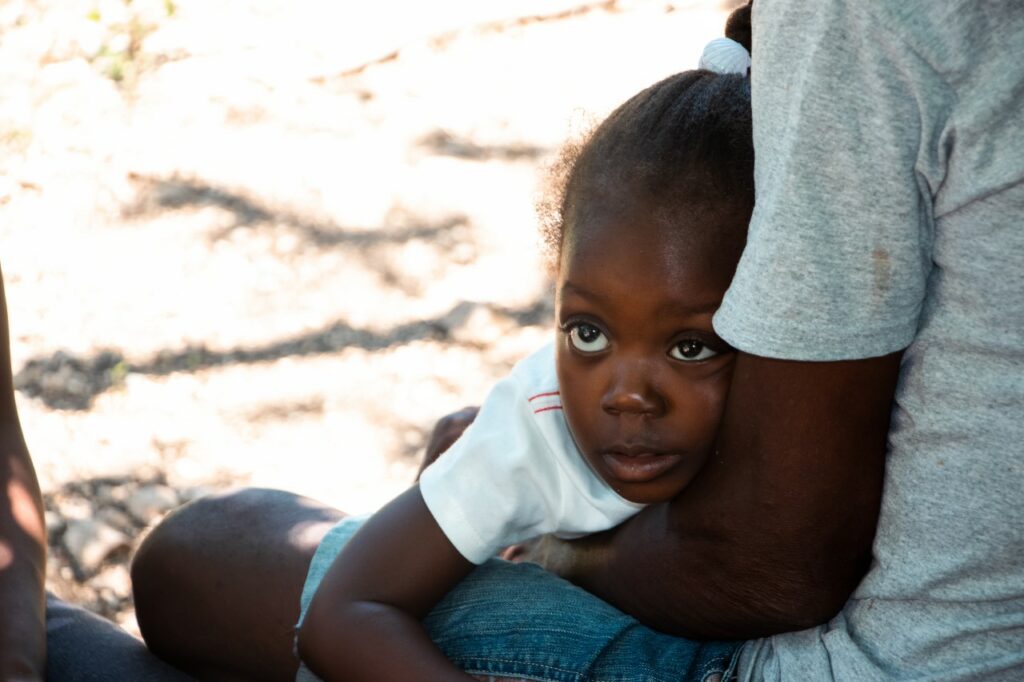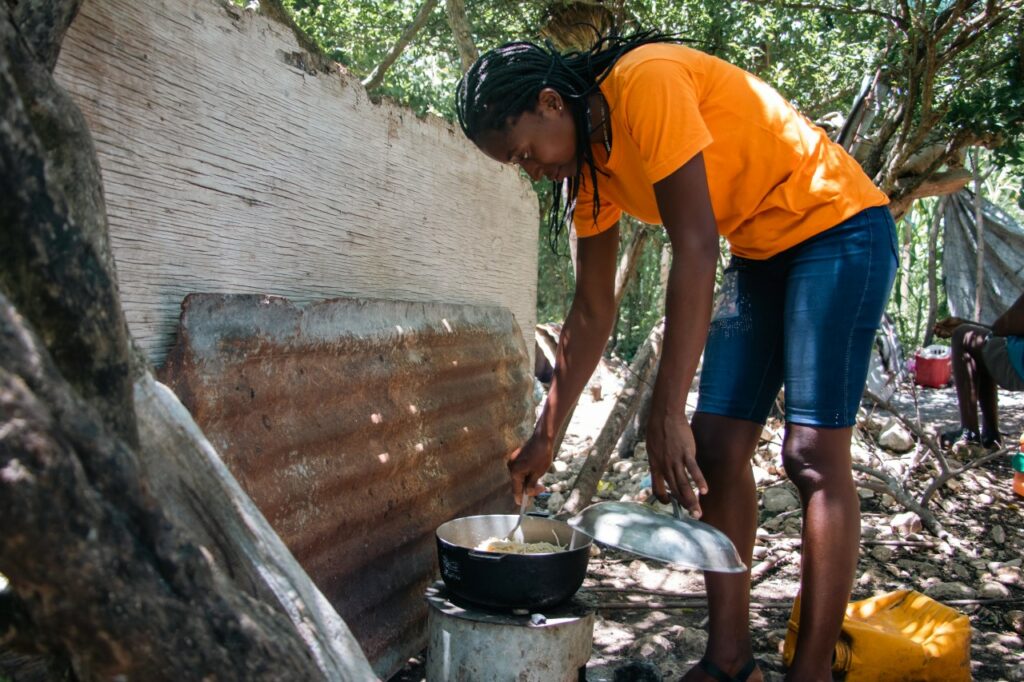According to the latest national survey in Haiti, one in 12 children dies before the age of five through avoidable illness and malnutrition. With one of the highest infant mortality rates in Latin America and the Caribbean, children in Haiti are suffering from the impacts of poverty, insecurity and the high cost of living.
In a village in South-East Haiti, 22-year-old Salinda has no way to treat the health problems of her three-year-old daughter Floranciana who was born with a congenital problem and requires surgery which the family are unable to pay for. “When she was born, we spent five days in the hospital. But without any money, she could not receive the necessary care.”

Salinda used to sell second-hand clothes, but the country’s fragile situation meant she had to give it up and the family are now dependent on her husband’s income. He is a mechanic and earns about 500 to 1000 Haitian gourds, equivalent to 4 to 8 USD. “Before this crisis, we used to eat two or three times a day. Now we can only afford to eat once a day,” she says.
Salinda lives with her husband, two children and a young mother who she invited to live with her family. The girl was living alone in Port-au-Prince while she was pregnant with no one to care for her. The Haitian capital has the highest kidnapping rate per capita in the world and women on their own are extremely vulnerable. “I didn’t want her living in Port-au-Prince, she lived in Croix-des-Bouquets, where people were being killed.”
The family do not have their own home and are currently living in a house with Salinda’s parents. As well as struggling to find enough food each day, accessing water is also a concern and Salinda has to walk for over an hour each day to collect water for the family.
The family is being supported by Plan International as part of our emergency response to the hunger crisis in Haiti. Salinda recently received a cash transfer which she used to buy some much needed food. “I was able to do some shopping. I bought bulk groceries for my children, I bought rice, oil, spaghetti and spices.”

Salinda and her family hope that Haiti starts to recover from this crisis soon. 4.9 million (43% of the population) are in acute food insecurity, with 1.3 million people in need of urgent food assistance, making the country one of the hungriest in the world.
When we ask Salinder about her hopes and dreams, she simply says: “I want to live well, get food for my children and have enough food to eat.”